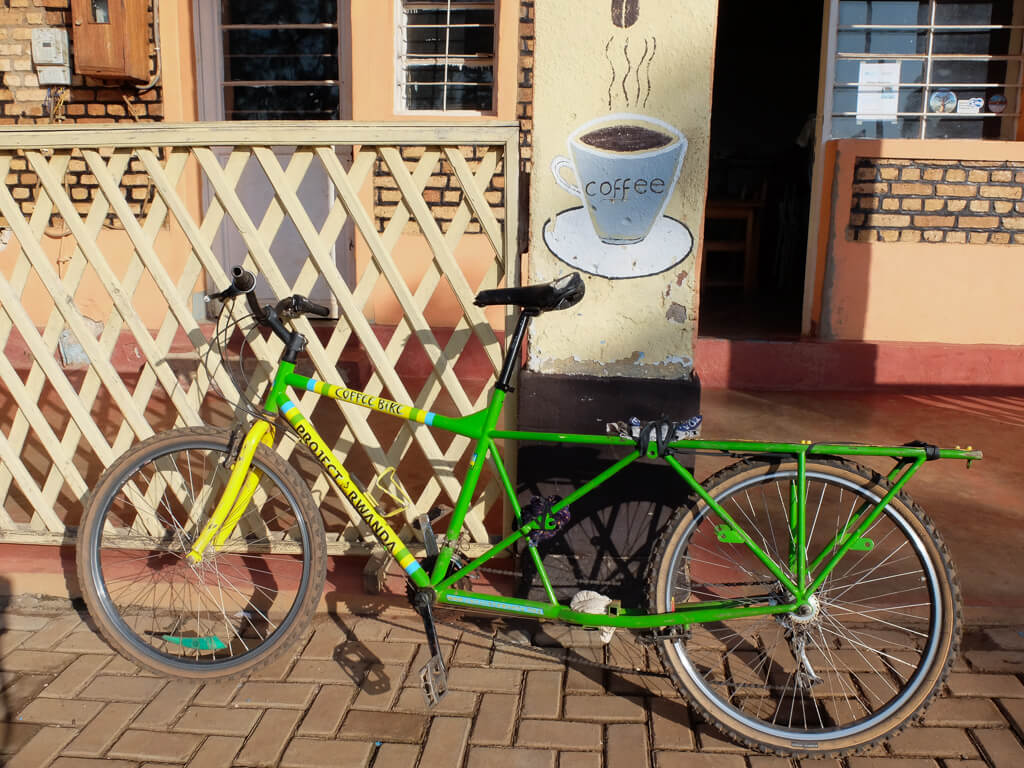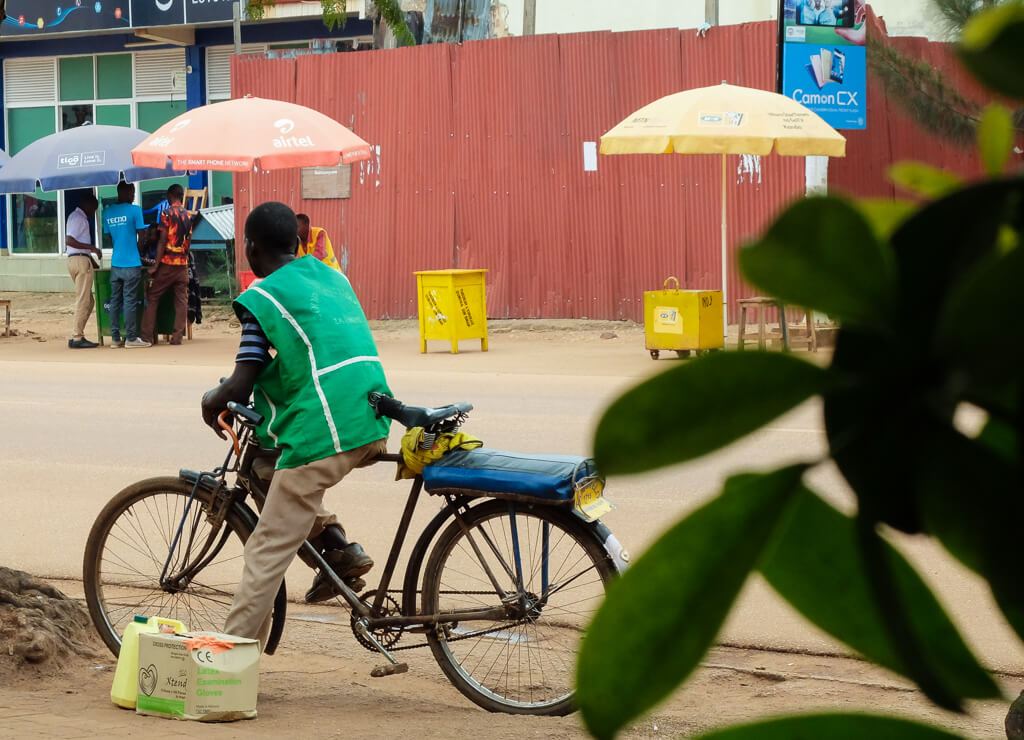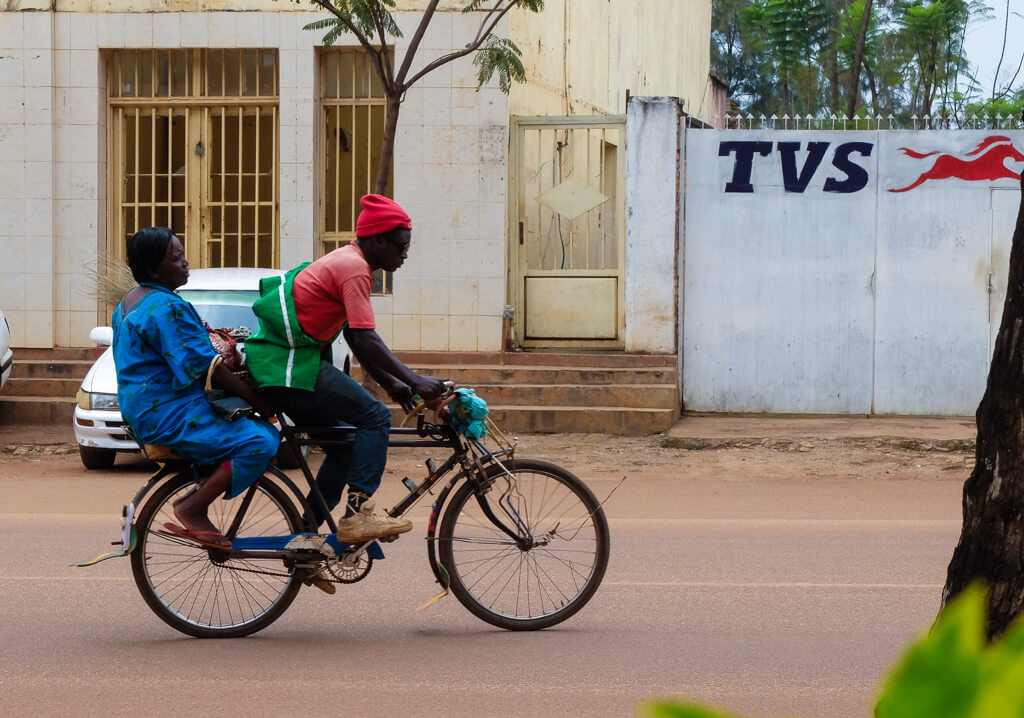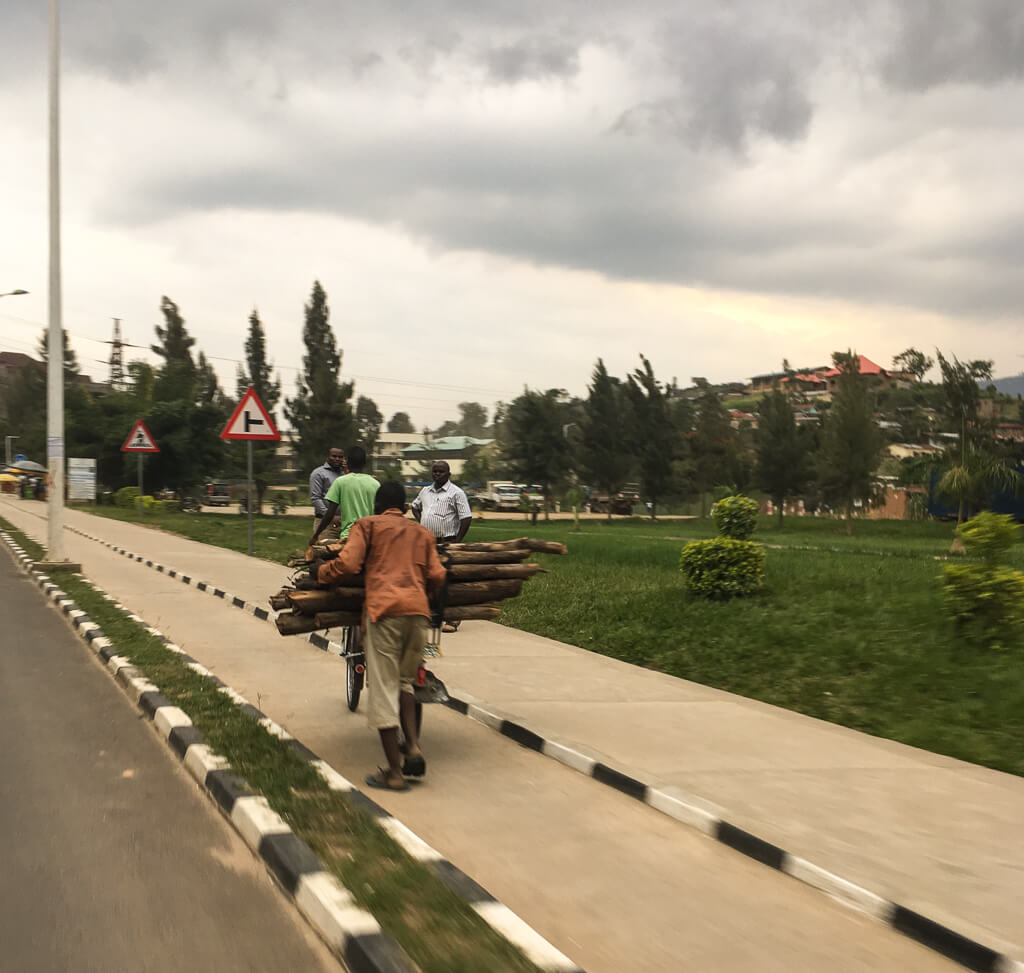Autumn Gear Guide
Find inspiration in our Gear Guide that will keep you out on your bike through wind or rain.
Download NowBicycling isn’t usually the first thing to come to mind when people think of Rwanda, but the tiny East African country is a bike-friendly leader in the region.
There is scarcely a flat road in Rwanda.
While the tiny Easy African country’s international reputation is unfortunately dominated by its brutal history, locals and visitors know the country is much more than its past. It’s a country of pristine lakes and misty forests, abundant agricultural land and lush jungle. And mostly, hills.
They call Rwanda the Land of a Thousand Hills, but it feels like closer to a million. It’s just slope after slope after slope, with the roads winding up, down, and around, through little towns and villages tucked in among the trees and farms.
The population is largely rural – only 30% of Rwandans live in Kigali and other major towns – while the remainder reside in the hillside agricultural regions that dominate the landscape.
But farming in a mountainous country is not without its challenges, especially when it comes to moving your products to the market. Emerging from the shadows of its past, Rwanda still struggles with persistent poverty – many young people remain un- or underemployed and most farmers have little to no money to spare for transportation.
Recognizing a simple solution to a complex problem, a few NGOs have been working in Rwanda over the past decades to bring bicycles to the people in order to address their transportation needs.

The Project Rwanda Coffee Bike.
The most prominent of these is Bikes to Rwanda/ Project Rwanda, a joint initiative between the CEO of Portland-based Stumptown Coffee Roasters and renowned mountain bike builder Tom Ritchey. During a 2006 trip to visit his coffee-growers, Stumptown CEO Duane Sorenson asked one of the farmers what he could do to improve their quality of life. The farmer responded that a bicycle would be helpful to move the beans more quickly and easily to the mills. Sorenson teamed up with Ritchey, and the Coffee Bike was born.
Since then, Project Rwanda has delivered thousands of specially designed longtail cargo bikes to Rwanda, each with the capacity to carry up to 350 lbs.
But Project Rwanda isn’t the only way bicycles get to Rwanda, and not everybody is so lucky to be riding a specially-designed longtail with 18 gears. Over the years, there has been a steady influx of old bicycles to East Africa, imported on the cheap from India and China. The bikes are heavy-duty steel city bikes, single-speed, and weighing in around 20 kg. They have an elongated steel platform behind the saddle to carry cargo or people, and with their arrival, an economy is born.
Wandering around any Rwandan town, you’ll see young men pushing oversized bundles of firewood up mile-long hills on the backs of their bikes, sweating through their tank tops on a chilly mountain morning. On the opposite side of the street, bundled up in sweaters and beanies, men coast freely down the long inclines carrying 100kg of sweet potatoes in a sack, or ten trays of beer bottles stacked perilously high above their heads.
If necessity is the mother of all invention, then poverty is the mother of all effort, because these guys work hard.
While the bikes are designed to carry heavy loads, they’re certainly not equipped with electric assist, and in most cases are old and rusty or using worn-out parts. Spare parts are difficult to come by in Rwanda, so when the bikes break down they’re often jimmy-rigged back together using old car parts, bits of spare wire, or whatever the owner can get their hands on.

A bicycle taxi driver waits while his customer finishes shopping. Old steel single-speeds like his are ubiquitous in East Africa.

A woman catches a ride across town on a bicycle taxi.
Beyond their role in the transportation of goods, the cargo bikes have also provided employment as bicycle taxi drivers for thousands of young men who otherwise lack marketable skills or opportunities. At any given corner in town, you’ll see lineups of bicycle taxis waiting for customers, ready to carry 1-3 passengers at a time for a nominal fee.
For some of the guys in this role, the bicycle presents not only an opportunity to scratch out a living, but the chance to one day ride with Team Africa Rising (TAR), Rwanda’s national cycling team and the first African cycling team to compete at an international level. Given the enormous effort required to cargo bike daily in this incredibly hilly country, it’s no small surprise that many of TAR’s riders got their start as bicycle taxi drivers.

An old man pushes a bundle of firewood up the protected bike lane in Kibuye.
In the past 20 years, Rwanda has made incredible strides in its post-genocide reconstruction effort, and this effort has resulted in, among other things, a country-wide network of well-maintained tarmac roads unlike any other in East Africa.
Walking down the street one day in the lakeside town of Kibuye, in southern Rwanda, I wondered about the separated path between the road and the sidewalk. What is this strange corridor that people use to walk their goats down? It wasn’t until I saw the signpost with a bicycle emblem that I realized that this fancy goat path was in fact a designated protected bicycle lane.
While I wouldn’t exactly call Rwanda the next Netherlands, it was certainly inspiring to see the myriad ways in which a simple bicycle is improving people’s lives against difficult odds, and to see the country throwing its support behind those goals.
Find inspiration in our Gear Guide that will keep you out on your bike through wind or rain.
Download Now
I’m curious where you heard that story? That’s a new one. I’m pretty sure the founder of Yuba has never been to Africa on a service project nor knows how to weld.
I believe I have benefitted from just this type of initiative! If I have the back story correct, Xtracycle founder and then spin-off company Yuba bike founder both spent time together in Africa welding together cargo bikes for a small number of people there, and returned to the USA to market updated designs put into mass production! Lusting for a longtail Xtracycle while hauling ridiculous loads by bike trailer led me to purchase at my first opportunity.
I fell in love with a Yuba bike while shopping for an Xtracycle, and my trailers are gathering dust ever since my purchase! It has made my life easier by far, and electric conversion even more so. I feel a direct connection to this story in the article.
Comments are closed.